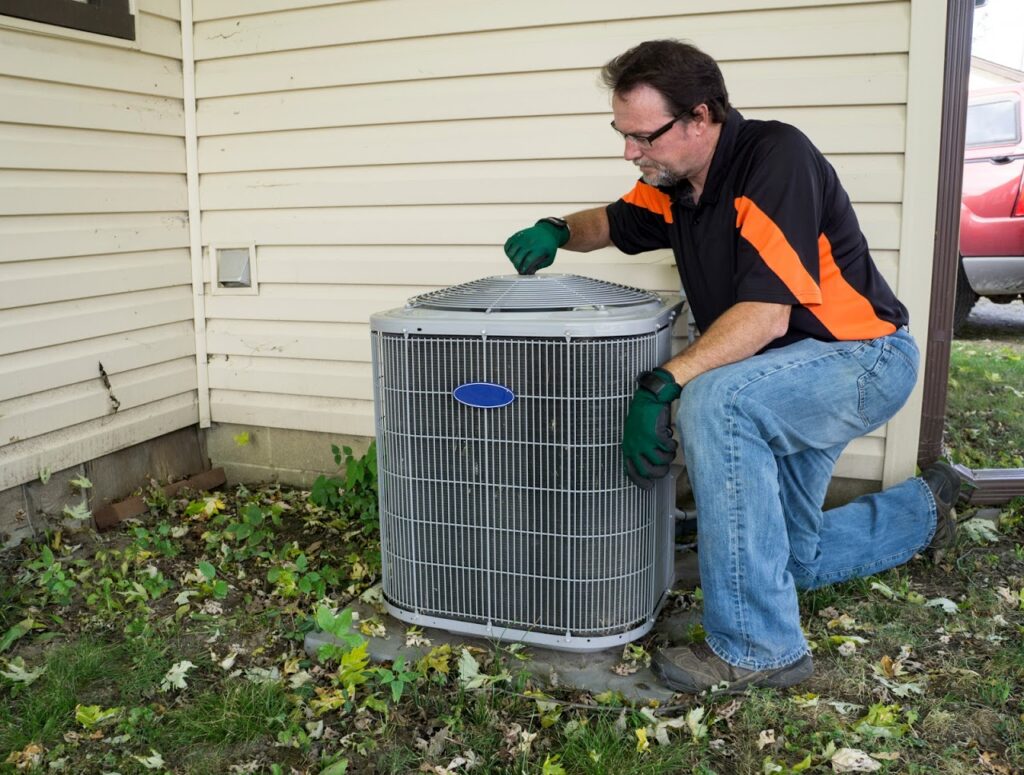The indoor temperatures and the air quality determine the level of comfort in your home. For this reason, you need an efficient heating, ventilation, and air conditioning (HVAC) system. The HVAC system helps create a healthy environment in a home, and that’s why you should take its efficiency seriously.
Despite proper care and maintenance, however, your HVAC might break down or become inefficient and need a replacement. Learn about signs you need to replace your HVAC system.
Age
If your system has operated for ten to fifteen years, you should replace it. Most components in an HVAC system may start to deteriorate after ten years. They may release chemical byproducts and reduce the overall efficiency of the entire system.
Moreover, HVAC systems that have worked for years might consume more energy than the new ones. The old HVAC might have to operate twice as hard to achieve a particular goal, and this translates to high energy bills. Replacing your old system with a new one can cut your energy costs.
Regular maintenance, such as replacing the air filters, can retain your system’s efficiency for some time. But, at some point, the maintenance strategies may not be effective, and you should consider a replacement.
Noise
HVAC systems in good shape operate quietly or with low sounds. If your system produces too much noise that you didn’t experience when it was relatively new, you need to replace it. This is especially necessary if you had repaired it several times before in an attempt to fix the problem.
Examples of these unusual sounds include screeching sounds, which indicate motor-bearing issues; grinding sounds from damaged components; and banging sounds, which could mean something is broke. You should always act on time before the problem gets worse.
Temperature Inconsistency
A struggle to keep the indoor temperature at a comfortable mark is a sign that your system’s thermostat has failed. Also, it could mean that the motors, ducts, or filters have a significant problem. Temperature inconsistency could drastically increase your energy bills, especially when you are not at home to adjust it, and hence, replacement could be a great idea.
Frequent Repairs
Repair and replacement of broken components are vital in increasing the lifespan of your HVAC system. However, if the repairs are quite frequent, and they cost you almost half or more the price of getting a new system, you should buy another one.
Odors
Unusual odors from the HVAC system could be from several issues such as melting wiring, burned circuit boards, clogged drain pans, and gas leaks. Also, it may be due to the presence of mold in the ducts. You should turn off your HVAC system when you notice the smell and get professional help to prevent further damage.
Dust
The ventilation section of an HVAC system is designed to filter the air in your home and remove dust particles. If your house has more dust than usual, the system is no longer able to remove pollutants. Therefore, you should consider a replacement, especially if the problem persists after repairs.
Overall Air Quality
Poor air quality is a significant indicator that your HVAC system needs attention. If your indoor air has tiny particles or high levels of humidity, then you should buy a new system. Low-quality air might also contain mold that could create a strong and unusual odor.
HVAC systems have a lifespan, just like any other human-made appliance. Therefore, you need to be ready to replace it when the time comes. Our company offers HVAC inspection, installation, repair, and maintenance services in Texas. We also sell reliable HVAC systems for commercial and residential clients. Contact us now for quality services.
